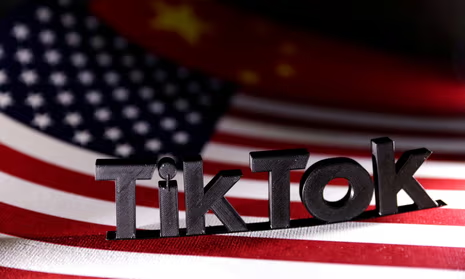The TikTok Ban Debate: Exploring the Global Implications

TikTok, the short-form video platform that skyrocketed to global popularity, has been at the center of an ongoing debate about its security, influence, and potential risks. The app, developed by the Chinese company ByteDance, has accumulated over a billion users worldwide, especially among younger audiences. Despite its success, the platform has faced scrutiny from governments, lawmakers, and regulatory bodies across the globe, resulting in calls for a TikTok ban. These calls have raised significant concerns about privacy, security, geopolitical tensions, and the future of digital media. In this article, we will explore the TikTok ban debate, its global implications, and what this could mean for users, governments, and industries worldwide.
The Rise of TikTok: A Global Phenomenon
TikTok’s meteoric rise in recent years is undeniable. Launched in 2016 under the name Douyin in China, TikTok became a global sensation after merging with the app Musical.ly in 2018. The platform, which allows users to create and share 15-second to 3-minute videos, has become a hub for creativity, entertainment, and viral content. It boasts a highly engaged user base, with over 1.2 billion active users as of 2023. TikTok’s algorithm is lauded for its ability to provide highly personalized content to users based on their preferences and engagement.
TikTok’s global appeal spans multiple continents and cultures, making it one of the most widely used social media platforms in the world. It is not just an entertainment platform but also a significant marketing tool, with businesses and influencers leveraging it for brand promotion and audience engagement. Despite its overwhelming success, concerns regarding its data privacy practices, user security, and potential influence on national security have led to calls for a TikTok ban in several countries.
Why Are Countries Considering a TikTok Ban?
The debate around banning TikTok has become a global issue, and several countries have cited varying reasons for considering such a measure. Below are the main factors contributing to the growing push to restrict or outright ban the app:
- National Security Concerns
National security has been one of the driving forces behind the calls for a TikTok ban, particularly in the United States and several Western countries. The primary concern stems from TikTok’s parent company, ByteDance, being based in China, a country with strict data control laws and a history of cybersecurity concerns.
Governments worry that data collected by TikTok could be accessed by the Chinese government, leading to potential espionage or the misuse of personal data. TikTok collects a vast amount of user data, including location, browsing habits, and biometric data, which some lawmakers argue could be exploited for political or economic gain.
In response to these concerns, TikTok has repeatedly denied accusations of sharing data with the Chinese government, asserting that its data is stored outside of China, in countries like Singapore and the United States. However, these assurances have not entirely alleviated fears among governments and security experts.
- Data Privacy Issues
Data privacy has emerged as another major issue surrounding TikTok. The platform collects a significant amount of personal data from its users, including but not limited to location data, device information, browsing activity, and even facial recognition data. This data is often shared with third-party advertisers and can be used to create highly targeted ads and recommendations.
Countries with stricter data protection laws, such as those in the European Union, have raised concerns about TikTok’s compliance with privacy regulations like the General Data Protection Regulation (GDPR). Governments worry that TikTok’s data collection practices might violate privacy rights and pose risks to user confidentiality.
- Influence on Youth and Misinformation
TikTok has become a powerful platform for influencing young people, with its viral trends and challenges. While this is often seen as a positive form of self-expression and entertainment, it has also raised concerns about the mental health of young users. Critics argue that TikTok promotes unhealthy beauty standards, unrealistic lifestyles, and potentially harmful content.
Moreover, the app has faced criticism for spreading misinformation, especially during political events, pandemics, and social movements. The platform’s algorithm, which promotes content based on user engagement, can amplify misleading or controversial content, contributing to the spread of fake news.
- Geopolitical Tensions
Geopolitical tensions between countries have further fueled the TikTok ban debate. For instance, the United States has expressed concerns over Chinese influence in global technology companies, with TikTok being one of the most prominent examples. In 2020, former U.S. President Donald Trump issued an executive order attempting to ban TikTok, citing national security concerns. Although the ban was never fully implemented, it sparked a broader conversation about the control that foreign governments might have over digital platforms in other countries.
In India, TikTok was banned in 2020, alongside several other Chinese apps, in the wake of escalating border tensions with China. This decision was based on concerns over national security and the potential misuse of user data. Other countries, including Australia and several European nations, have also considered or implemented measures to restrict TikTok’s operations within their borders.
- Content Regulation and Censorship
Another factor influencing the TikTok ban debate is the issue of content regulation and censorship. Some governments have expressed concerns over TikTok’s ability (or inability) to control harmful content on the platform, such as hate speech, violence, and extremist material. TikTok has made efforts to address this issue by implementing content moderation policies, but critics argue that the platform’s algorithmic nature makes it difficult to ensure the accuracy and safety of content.
Furthermore, some countries have raised concerns about TikTok’s compliance with local content laws and regulations, particularly in regions with strict censorship policies. TikTok has faced pressure from governments in several countries to adhere to local rules around freedom of speech, political discourse, and cultural norms.
What Could a TikTok Ban Mean for Users and Industries?
While the potential TikTok ban may seem like a victory for some governments concerned about security and data privacy, its impact could be far-reaching. Here’s how the ban could affect various groups and industries:
- Impact on Content Creators
TikTok has become a vital platform for millions of creators, many of whom rely on it for their livelihood. The app has allowed users to gain viral fame, build massive followings, and monetize their content through brand partnerships, sponsored posts, and product promotions. A TikTok ban could significantly disrupt the careers of these creators, forcing them to seek alternatives.
Platforms like Instagram Reels, YouTube Shorts, and Snapchat Spotlight may see a surge in content creators migrating from TikTok, although it is unclear whether these platforms can replicate the viral success and engagement TikTok offers.
- Influence on the Digital Marketing Industry
TikTok has become a critical platform for businesses and marketers, with its innovative approach to advertising and influencer marketing. A ban could have serious consequences for brands that have invested heavily in TikTok as part of their digital marketing strategy.
The platform’s highly engaged user base and advanced algorithm allow businesses to target potential customers with precision. Marketers may need to pivot to other platforms to achieve similar levels of engagement and brand exposure. This could lead to a shift in the digital marketing landscape, with marketers diversifying their strategies to include Instagram, YouTube, and newer platforms that gain popularity in the wake of a TikTok ban.
- Impact on Global Relations
A TikTok ban could further strain international relations, especially between countries with differing stances on data privacy and digital sovereignty. Governments that take action against TikTok may face backlash from the millions of users who consider the platform an essential part of their digital lives. Additionally, countries that impose bans could face diplomatic challenges, as tech companies with global operations could be caught in the crossfire of political disputes.
What’s Next for TikTok?
While TikTok faces significant regulatory scrutiny, its future remains uncertain. The company has consistently attempted to address concerns by strengthening its data privacy practices, enhancing content moderation, and even moving some of its operations to countries like the U.S. and Singapore in a bid to appease regulatory bodies. However, whether these efforts will be enough to stave off global bans remains to be seen.
The ongoing debate surrounding TikTok highlights broader issues related to digital sovereignty, data privacy, and the role of technology companies in shaping global politics. The future of TikTok may be determined by not only its ability to navigate these complex issues but also by how it responds to the growing calls for accountability and transparency in the tech industry.
FAQs About the TikTok Ban Debate
- Why are countries considering a TikTok ban?
Countries are considering a TikTok ban due to concerns about national security, data privacy, and the platform’s potential to spread misinformation. Many governments fear that TikTok’s Chinese ownership could lead to the sharing of user data with the Chinese government, posing a national security risk.
- Has TikTok been banned in any countries?
Yes, TikTok has been banned in countries like India, where it was removed along with other Chinese apps due to border tensions with China. The United States has also explored the possibility of banning TikTok, citing national security concerns, but no official ban has been implemented yet.
- How does TikTok affect young users?
TikTok has a significant impact on young users, particularly due to its algorithm-driven content recommendations. While the app offers entertainment and creative outlets, it has also been criticized for promoting unrealistic beauty standards and potentially harmful challenges. There are also concerns about its influence on mental health.
- What are the potential consequences of a TikTok ban for businesses?
A TikTok ban could disrupt digital marketing strategies for businesses that rely heavily on the platform for brand promotion, influencer marketing, and audience engagement. Companies may need to shift their focus to other platforms like Instagram, YouTube, or newer emerging alternatives.
- Will TikTok be banned permanently?
While the future of TikTok remains uncertain, the possibility of a permanent ban depends on the platform’s ability to address security and privacy concerns. Governments around the world are likely to continue monitoring the app’s practices, and its fate will be shaped by regulatory developments in the coming years.
You May Also Read: https://usasmartnews.com





